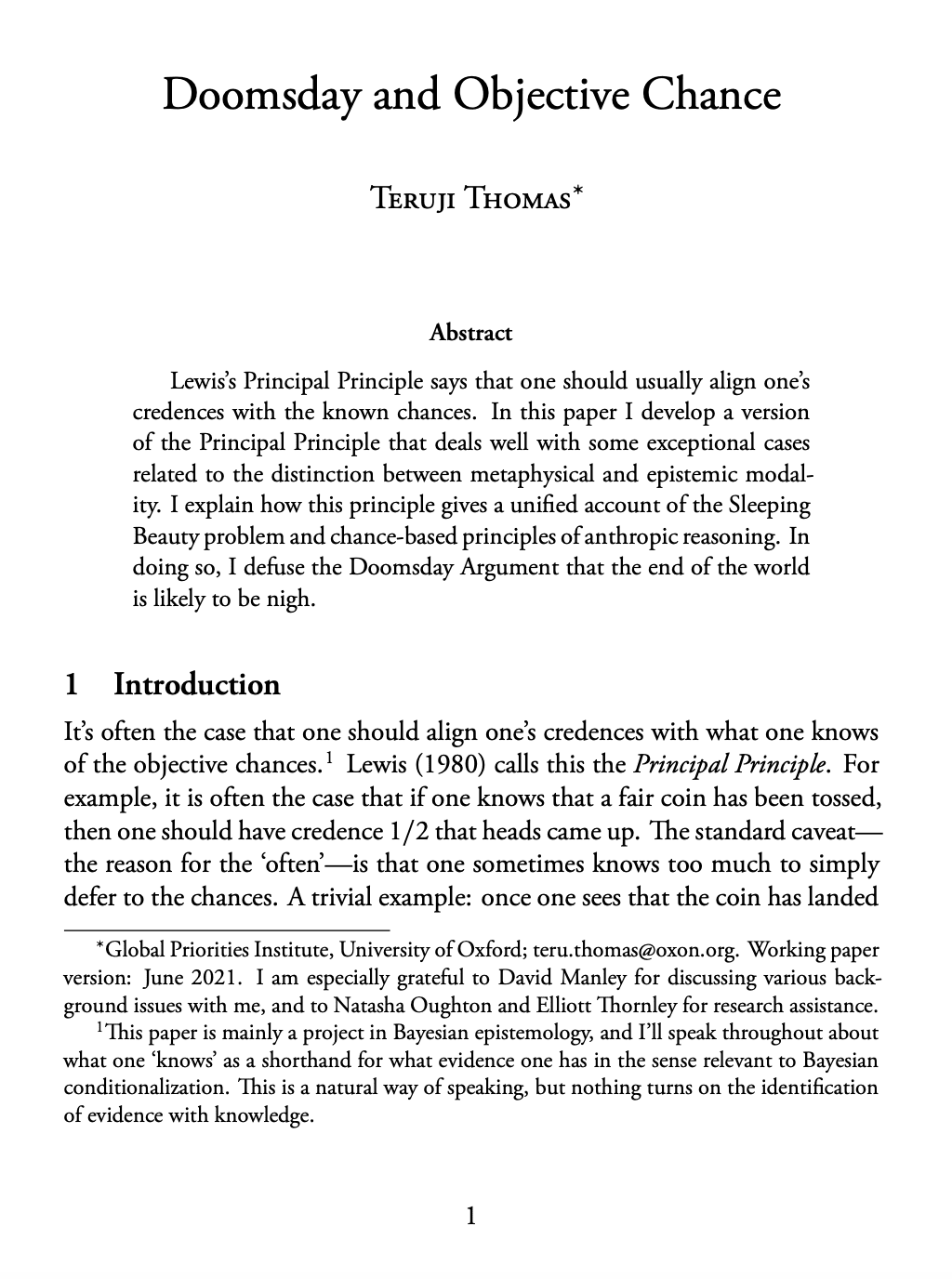Doomsday and objective chance
Teruji Thomas (Global Priorities Institute, Oxford University)
GPI Working Paper No. 8-2021
Lewis’s Principal Principle says that one should usually align one’s credences with the known chances. In this paper I develop a version of the Principal Principle that deals well with some exceptional cases related to the distinction between metaphysical and epistemic modality. I explain how this principle gives a unified account of the Sleeping Beauty problem and chance-based principles of anthropic reasoning. In doing so, I defuse the Doomsday Argument that the end of the world is likely to be nigh.
Other working papers
Non-additive axiologies in large worlds – Christian Tarsney and Teruji Thomas (Global Priorities Institute, Oxford University)
Is the overall value of a world just the sum of values contributed by each value-bearing entity in that world? Additively separable axiologies (like total utilitarianism, prioritarianism, and critical level views) say ‘yes’, but non-additive axiologies (like average utilitarianism, rank-discounted utilitarianism, and variable value views) say ‘no’…
The Shutdown Problem: An AI Engineering Puzzle for Decision Theorists – Elliott Thornley (Global Priorities Institute, University of Oxford)
I explain and motivate the shutdown problem: the problem of designing artificial agents that (1) shut down when a shutdown button is pressed, (2) don’t try to prevent or cause the pressing of the shutdown button, and (3) otherwise pursue goals competently. I prove three theorems that make the difficulty precise. These theorems suggest that agents satisfying some innocuous-seeming conditions will often try to prevent or cause the pressing of the shutdown button, even in cases where it’s costly to do so. I end by noting that…
Against Anti-Fanaticism – Christian Tarsney (Population Wellbeing Initiative, University of Texas at Austin)
Should you be willing to forego any sure good for a tiny probability of a vastly greater good? Fanatics say you should, anti-fanatics say you should not. Anti-fanaticism has great intuitive appeal. But, I argue, these intuitions are untenable, because satisfying them in their full generality is incompatible with three very plausible principles: acyclicity, a minimal dominance principle, and the principle that any outcome can be made better or worse. This argument against anti-fanaticism can be…

